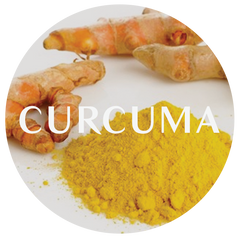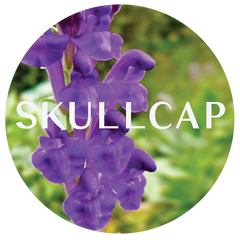Our Ingredients
It took us nearly 20 years, but after hundreds of hours of research, thousands of clinical patients, and a whole ton of blood, sweat, and tampons, we finally built the perfect period supplements. See ingredients below to learn more.

















The Perfect Blend
Mental Health Blend: Silk Tree Bark and Polygala Root are traditionally used to improve mood and soothe irritability, mental stress, and restlessness.
Reproductive Support Blend: A proprietary blend of Chinese Peony Root, Bupleurum Root, Cyperus Rhizome, and Licorice Root are known for their anti-inflammatory, antioxidant, and pain relieving effects, supporting a healthy reproductive system.
Digestive Health Blend: A combination of licorice, honey, and mint helps with PMS symptoms like nausea, bloating, bowel changes, and cravings.
The Science
We started with a formula that was effective for more than 80% of women. Then we made it better.
Brazen PMS Support: Our PMS Support blend is based on one of the most widely prescribed traditional formulas for PMS. The base formula we chose is known for its anti-anxiety and antidepressant effects, as well as its ability to address the physical symptoms of PMS like fatigue, insomnia, breast pain, anxiety, irritability, mood swings, and tension.
We also wanted to make sure our formula was strong enough for even the worst PMS. In one study for PMDD, a severe disease with PMS-like symptoms, the base formula we settled on was effective for more than 75% of women, with 46.7% of women achieving remission according to the HAM-D depression rating scale. 81% of patients at the conclusion of the study no longer met the DSM-IV criteria for PMDD. That sounded like a great place to start, so we set about making our formula the best in the biz.
Ingredients: Angelica Root, White Peony Root, Poria, Silk Tree Bark, Valerian Root, Siberian Milkwort Root, Bupleurum Root, Red Peony Root, Baikal Skullcap Root, Cyperus Rhizome, Bai- zhu Atractylodes Rhizome, Turmeric Tuber Root, Tree Peony Root, Mint, Licorice Root
Brazen Cramp Support: A tradition of formulas almost twice as effective for treating menstrual pain as pharmaceutical treatments, all without the significant adverse effects.
Research shows traditional herbal medicine to be especially effective for common menstrual complaints. An industry leading Cochrane Systematic Review of 39 randomized control trials, including more than 3,400 women found that herbal formulas like ours were almost twice as effective for treating menstrual pain as pharmaceutical treatments like over the counter painkillers or birth control pills, all without significant adverse effects. Formulas like ours outperformed other natural treatments like acupuncture or using heating pads.
If you've had period pain, you've probably tried NSAIDs — they include aspirin, naproxen, ibuprofen, and mefenamic acid — as the most common treatment for period pain, they're somewhere between 45% and 53% effective. However, a recent review of NSAID use for dysmenorrhea (painful periods) concluded that "women using them need to be aware of the substantial risk of adverse effects." Common adverse effects of NSAIDs include: stomach problems (bleeding, ulcer, upset stomach), high blood pressure, fluid retention and swelling, kidney problems, heart problems, and rashes.
Here's What Matters:
Cyperus – here’s what matters:
-
A powerful combination of peony root, bupleurum root, Chinese licorice root, and cyperus rhizome effectively improved the symptoms of PMS related depression, by helping to regulate Glu/GABA balance in the central nervous system, specifically
by affecting neurotransmitters and receptors responsible for mood, memory, and other mental health conditions - Several studies have identified the antioxidant and free radical scavenging activity of this plant. It has demonstrated high reduction capability and powerful free radical scavenging.
Fennel Seed
In several randomized, placebo controlled trials, fennel seed was found to be as effective as NSAIDs (over-the-counter painkillers like aspirin) for treating menstrual pain — all without the potential side effects. We found more than 507 studies on Fennel — here's what matters:
- A 2012 study found that fennel seed was more effective than a placebo for controlling severe menstrual pain. On average, women started the study with 6/10 menstrual pain, and five hours after taking fennel seed rated their pain just a 1/10.
- Fennel seed isn't just better for cramps than placebo pills, it held its own against a potent pharmaceutical pain killer (similar to ibuprofen, but requiring a prescription). In a study of severe menstrual pain in high school students, there was no statistically significant difference between fennel seed and mefenamic acid, a preferred NSAID for treating menstrual pain. However, there were no reports of side effects in the fennel seed group, while possible side effects of mefenamic acid include nausea, diarrhea, rashes, autoimmune anemia, and kidney toxicity. A later study confirmed these results.
- Fennel seed has also been shown to relieve nausea and fatigue associated with menstrual bleeding, decrease the duration of the period, and improve overall feelings of well-being when taken over several cycles.
Frankincense & Myrrh
A traditional combination that's been demonstrated to be anti-inflammatory and relieve menstrual pain. We found more than 369 studies on Frankincense and Myrrh — here's what matters:
- This pair might sound familiar. Frankincense and Myrrh are used in traditional medicine to combat inflammation and pain related to menstruation and childbirth.
- Modern research has also confirmed that these two herbs have anti-inflammatory and analgesic (pain reducing) properties. In animal studies, frankincense and myrrh were found to be highly anti-inflammatory and worked in combination to relieve menstrual pain.
- New research is also helping us understand how these two ingredients work together to relieve pain.
Ginger Root
Found to reduce the severity and duration of menstrual pain and to improve PMS symptoms like headache, gastrointestinal disturbances, nausea, and aches and pains. We found more than 2,551 studies on Ginger — here's what matters:
- A double-blind, placebo controlled trial found that, when administered for two days prior to the period, and three days during, ginger reduced both the severity and the duration of menstrual pain
- The pain reduction wasn't just superior to placebo. Subsequent studies found that pain relief from ginger was equivalent to both ibuprofen and mefenamic acid. Because ginger produced no adverse effects, the researchers concluded that it be used as an alternative treatment to pharmaceutical interventions.
- PMS: Researchers found that ginger was effective for relieving a number of different PMS symptoms including: abdominal and low back pain, headache, gastrointestinal disturbances, nausea, and joint and muscle pain.
- Blood Volume: Ginger doesn't only reduce menstrual cramping, but the amount of menstrual bleeding as well. In a study with 93 young women, overall bleeding volume decreased significantly with the use of ginger. The researchers concluded, "ginger can be known as a highly effective treatment for menstrual blood loss and the promotion of the quality of life of young women. It is cheap, easy to use, and has fewer side-effects than other chemical and invasive approaches."
Licorice Root
Antioxidant with digestion strengthening effects. We found more than 1,857 studies on Licorice — here's what matters:
-
A powerful combination of peony root, bupleurum root, Chinese licorice root, and cyperus rhizome effectively improved the symptoms of PMS related depression, by helping to regulate Glu/GABA balance in the central nervous system, specifically
by affecting neurotransmitters and receptors responsible for mood, memory, and other mental health conditions. - When used in combination therapy, licorice root was effective at decreasing abnormal uterine bleeding in women with PCOS.
- Licorice is known for its wide variety of uses as an anti-inflammatory, but in particular we use it here for its digestive and harmonizing properties. In particular, licorice has been shown to be an effective treatment for a wide range of symptoms including abdominal fullness, bloating, nausea, vomiting, heartburn, and loss of appetite. Preparing the licorice with honey is a traditional method used to further increases its digestion harmonizing properties.
Motherwort
Known for its antispasmodic and relaxing effect on the uterus, it also helps relax tension and irritability. We found more than 236 studies on Motherwort — here's what matters:
- Motherwort has an antispasmodic and relaxing effect on the uterus. It also reduces tension, anxiety, irritability before and during the period.
Peony
Powerful analgesic, anti-inflammatory, antioxidant, and immunomodulatory effects. We found more than 380 studies on Peony — here's what matters:
-
A powerful combination of peony root, bupleurum root, Chinese licorice root, and cyperus rhizome effectively improved the symptoms of PMS related depression, by helping to regulate Glu/GABA balance in the central nervous system, specifically
by affecting neurotransmitters and receptors responsible for mood, memory, and other mental health conditions. - Herbs in the peony family are traditionally used for treating women’s health complaints. This powerful group of herbs have been shown to have analgesic (pain killing), anti- inflammatory, antioxidant, and immunomodulatory effects
Poria
A super fungi known for its ability to improve digestion and address symptoms like bloating, nausea, heartburn, and cravings. We found more than 445 studies on Poria — here's what matters:
- Poria is traditionally used to benefit digestion. With its inclusion in similar formulas to Unwind, it’s been shown to be an effective treatment for functional dyspepsia, a condition with symptoms like stomach pain, bloating, nausea, loss of appetite, and heartburn (sounds a lot like PMS to us!). In a clinical trial of 180 women, those in the control group had a nearly 50% reduction in symptoms, improved motilin and gastrin levels, and better gastric emptying rates (think improved constipation)!
Skullcap Root
A powerful anti-inflammatory that also helps protect the liver.
- Baikal skullcap is a particularly important ingredient because it contains two powerful antioxidant flavones called Baicalin and Baicalein. These compounds are anti- inflammatory and are effective in reducing pain. Chinese skullcap flavones have also been shown to decrease anxiety and inhibit anxiety increasing neurons.
- Additionally, Chinese skullcap flavones are hepatoprotective (they protect the liver), and decreased disease promoting proteins in the liver and also helped arrest liver cell death. Supporting healthy liver function is key to controlling PMS. Decreased liver function can lead to larger increases in hormone fluctuation, one of the primary causes of PMS symptoms.
- Finally, we chose Chinese skullcap for its anticancer effects, especially against ovarian and breast cancer. Baicalein has been demonstrated to inhibit the proliferation of both ovarian cancer and breast cancer cells.
Valerian
Antispasmodic and relaxing effect on the uterus, it also helps relax tension and irritability. We found more than 580 studies on Valerian — here's what matters:
- Valerian has been shown to decrease spasms in uterine muscle (that’s what a menstrual cramp ultimately is!)
- In a double-blind, randomized, placebo controlled trial, 100 women tested valerian to treat dysmenorrhea, or severe menstrual pain. In that study, the group that used valerian, showed a significant reduction in pain compared to placebo. Furthermore, there were no adverse effects associated with valerian treatment.
- Valerian is particularly well known for its mild tranquilizing and sedative effects, helping relieve stress, decrease irritability, and support healthy sleep.
Traditional Blends for Relief
Brazen's formulas are the result of years of clinical practice by board-certified herbalists. Our formulas are based on traditional blends, where herbs are chosen to work synergistically. We couldn’t turn our back on thousands of years of tradition, clinical experience, and intimate knowledge passed down by healers for generations.
Cramp Support also contains:
- Lindera root is traditionally used in treating pain in the low abdomen, and is considered especially good for menstrual pain. It is commonly used to reduce bleeding.
- Nutgrass rhizome and lindera root are frequently used together and complement each other's effect. Nutgrass rhizome has analgesic and sedative, and uterine relaxant effects.
- Costus root was chosen for this formula as it improves the digestibility and helps harmonize the formula as a whole. It is traditionally used to treat digestive disorders associated with menstruation, including bloating, abdominal fullness, pain, poor appetite, vomiting, and diarrhea.
- Himalayan teasel root is traditionally indicated for controlling irregular uterine bleeding.
In addition to herbs above that have been research validated to address menstrual pain and PMS, our proprietary blend includes the following herbs that were carefully chosen to potentiate and harmonize the overall formulas.
PMS Support also contains:
- Silk Tree Bark: Traditionally used for the treatment of depression, irritability, insomnia, and mood swings. We knew this would be the perfect way to complement our blend especially for the emotional rollercoaster of PMS.
- Polygala Root: The traditional indications for polygala include insomnia, mental stress, pent up emotions, fuzzy headedness, and restlessness.
- Chinese Mint: A bold, strong mint is traditionally used for a variety of stomach issues.
All rights reserved. The Brazen program is patent pending. The information provided here is for personal use only and may not be redistributed, reprinted, or repurposed in any way without permission from the publisher, except as permitted by U.S. copyright law.
For permissions contact: connect@foreverbrazen.com.
Brazen® is a registered trademark of Brazen, Inc.
Medical Disclaimer
These statements herein have not been evaluated by the Food and Drug Administration. This product is not intended to diagnose, treat, cure or prevent any disease.
It is your right to educate yourself in the arena of health and medical knowledge, to seek helpful information and make use of it for your own benefit, and for that of your family. You are the one responsible for your health. In order to make decisions in all health matters, you must educate yourself.
The views and nutritional advice expressed by Brazen, Inc. are not intended to be a substitute for conventional medical service. If you have a severe medical condition, see your physician of choice. We do not claim to “cure” disease, but simply help you make physical and mental changes in your own body in order to help your body heal itself.
No material or product included in this program is intended to suggest that you should not seek professional medical care.
© Brazen® 2021



